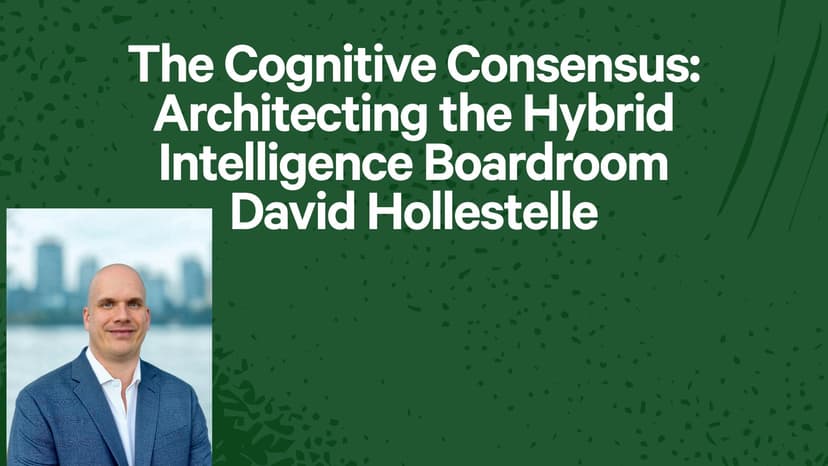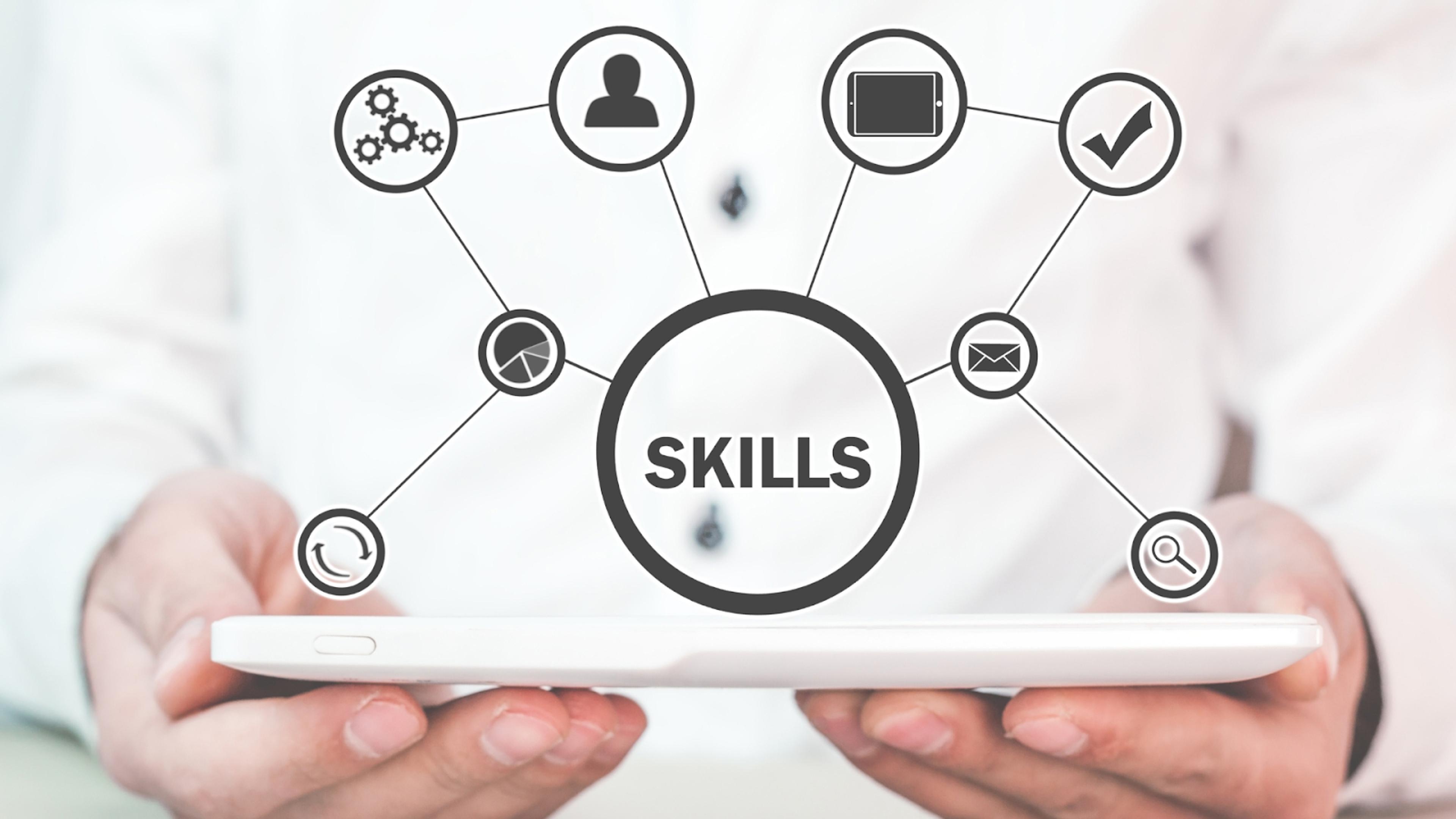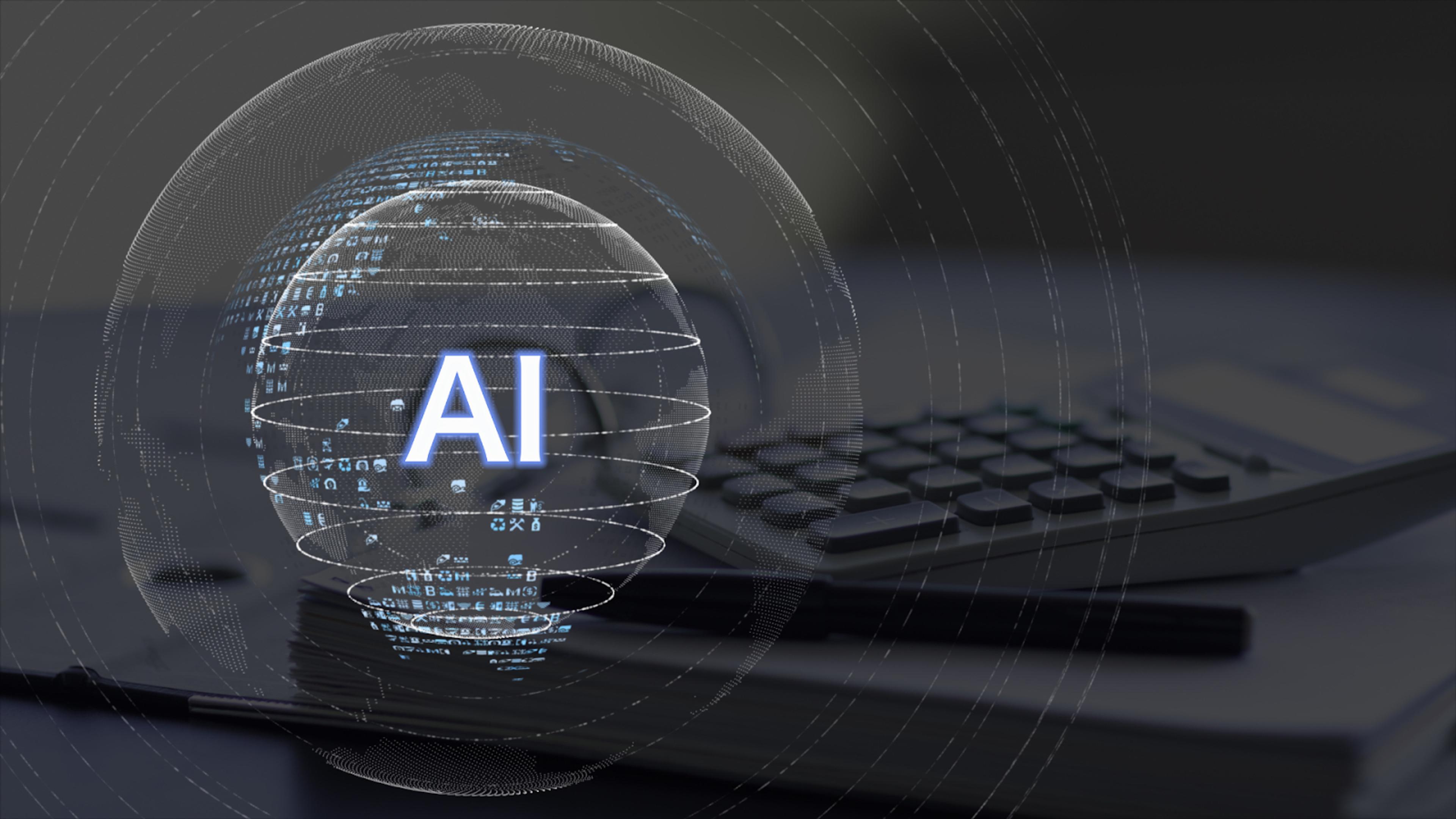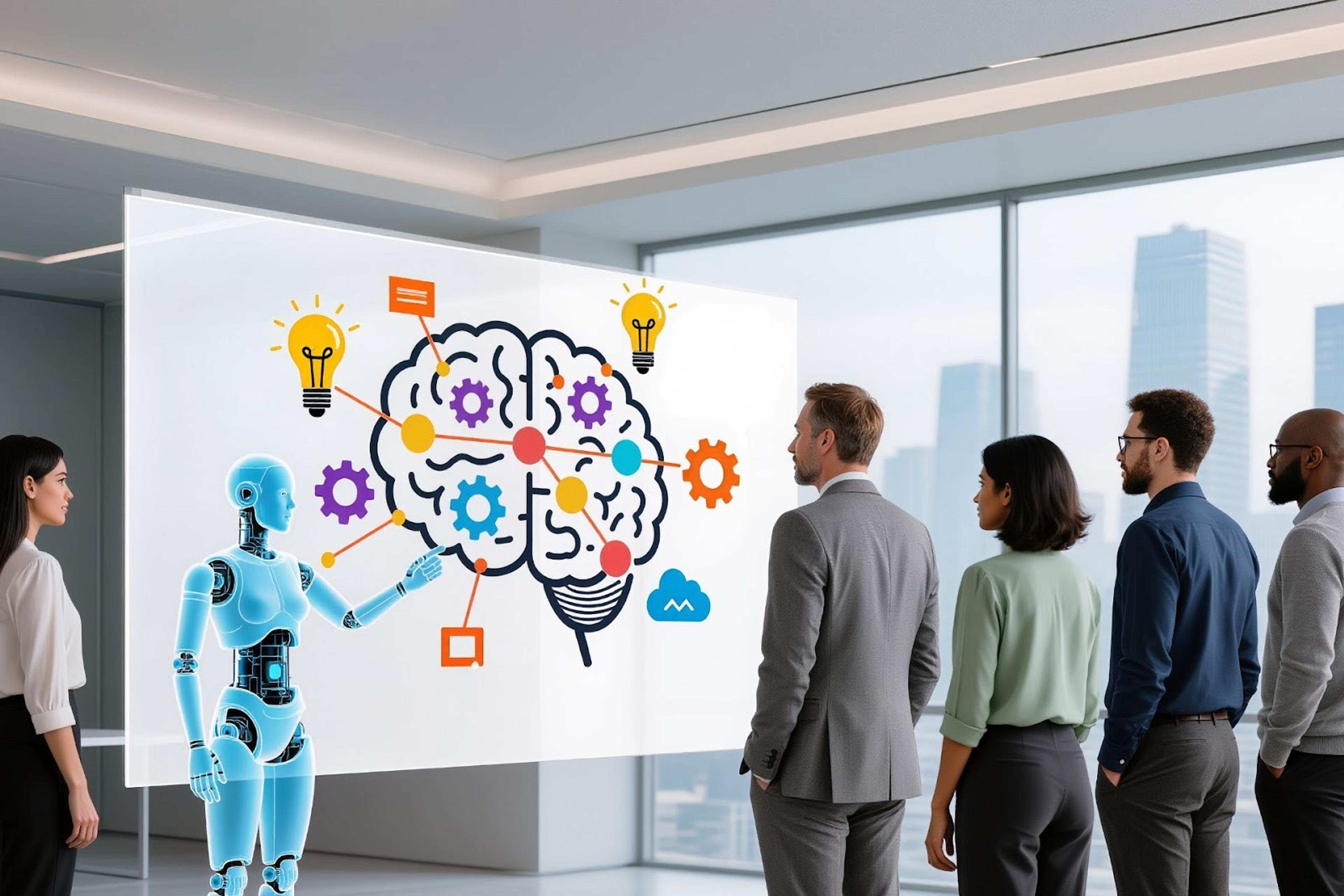How to Future-Proof Your Career in The Age of AI
Learn how to AI-proof your career with expert strategies, future-ready skills, and real-world insights to stay relevant in an AI-driven job market.
Posted November 25, 2025
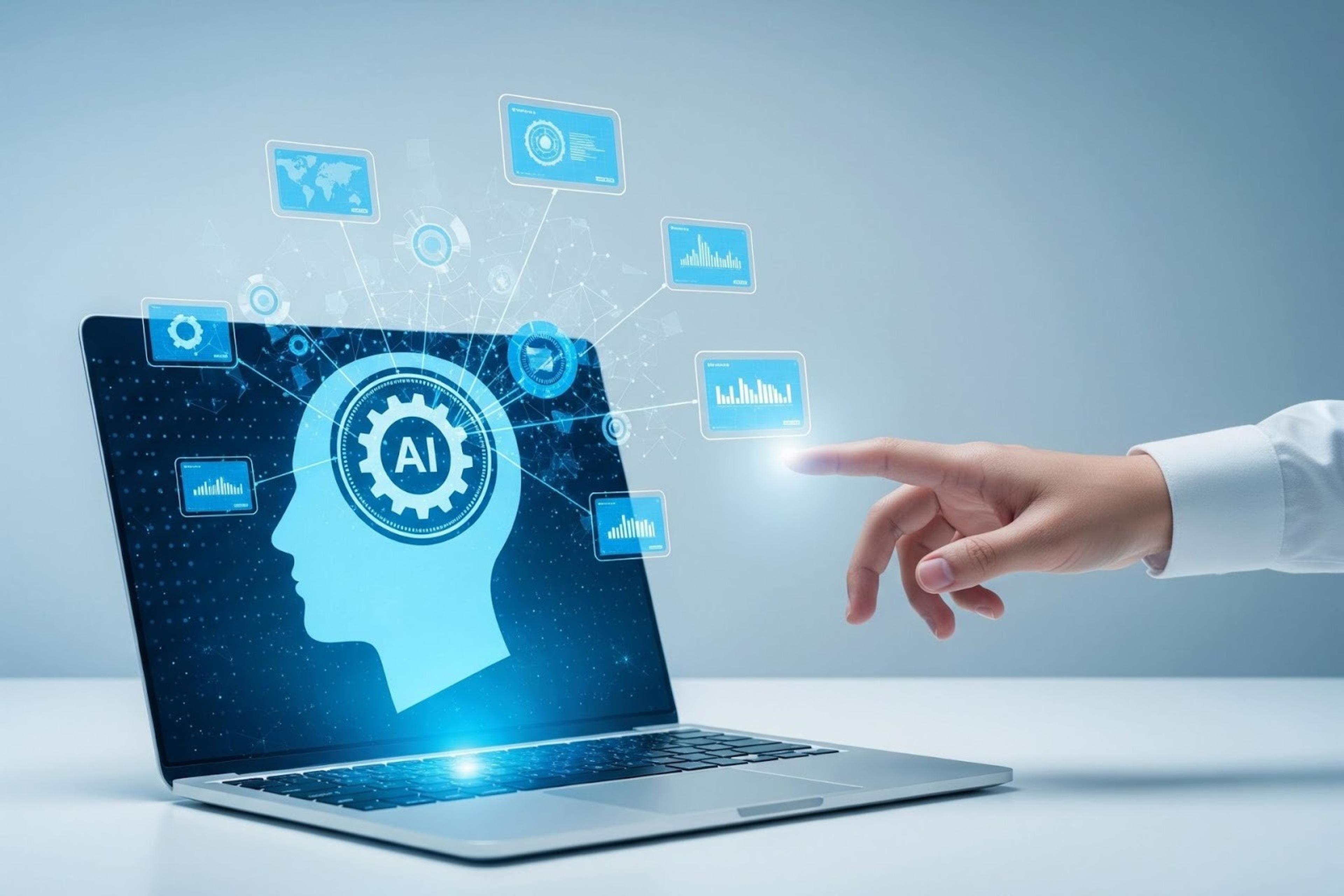
Join a free event
Learn from top coaches and industry experts in live, interactive sessions you can join for free.
Table of Contents
AI is no longer coming for the job market; it’s already here. In every industry, from finance to healthcare to creative work, automation and AI are rewriting the rules of value and relevance. Roles are being redefined, tasks are being offloaded to machines, and entire career paths are at risk of obsolescence. To future-proof your career, it’s no longer enough to work hard. You need to work smart, adapt fast, and lead the change.
In this guide, we’ll walk through the most strategic, evidence-backed ways to stay indispensable in the age of AI, grounded in expert insight, real-world examples, and tactical next steps you can apply today.
Why ‘Future-Proofing’ Your Career Matters Now
The age of artificial intelligence continues to shape the foundations of work. AI systems are advancing faster than most organizations (and workers) can adapt. Routine tasks are being automated. Job descriptions are being rewritten. And entire industries are undergoing reinvention not over decades, but within years.
But here’s what hasn’t changed: the value of distinctly human strengths. Skills like judgment, creativity, emotional intelligence, and nuanced communication remain irreplaceable, and they’re becoming the new currency of long-term career relevance.
“It’s not about being replaced by AI, but learning how to leverage AI to make yourself indispensable.”
“Humans need agency … the help of a machine surely will make complex tasks less tedious.”
These real-world insights echo a powerful shift: to stay ahead, you must stop thinking of your job as a static role and start thinking of yourself as an evolving product. That means combining technical skills with soft skills, mastering AI tools, and developing the strategic mindset to lead in a world where adaptability is the new advantage.
7 Core Strategies on How To AI-proof Your Career
As AI reshapes the job market, the most future-ready professionals won’t just adapt; they’ll evolve ahead of the curve. These seven expert-backed strategies will help you future-proof your career in the age of automation.
1. Embrace Lifelong Learning as a Competitive Advantage
The half-life of skills is shrinking. In a world of accelerated change, what made you valuable yesterday might not keep you competitive tomorrow. The only way to stay relevant is to commit to lifelong learning, not as a buzzword, but as a mindset and habit. This means identifying emerging AI tools, technologies, and workflows in your field and building a consistent rhythm for upskilling. Think of your career not as a fixed job title, but as a product that’s constantly iterating.
One UX professional shared on Reddit that it’s not enough to just prompt AI. You need to “understand the shape of the data, how the model works, and still design for humans.” That insight applies across every industry. Whether you're in design, sales, software, or healthcare, the key is combining domain expertise with adaptable new skills that AI can’t easily replicate.
2. Lead With What Makes You Human
AI excels in processing data faster than any of us, but it still can’t display genuine empathy, build trust in a tense negotiation, or navigate the emotional complexity of a team under pressure. This is your edge. The future belongs to professionals who double down on emotional intelligence, creativity, and people-centered problem solving.
In high-demand sectors like health care, roles like nurse practitioners are thriving because they depend on human relationships and nuanced judgment. As one Redditor working in UX put it: “You still need humans to help lead, guide, and manage a product from inception to delivery.” These skills won’t be automated anytime soon, and they’re in rising demand across leadership, coaching, and strategy roles.
3. Build Your Role Around AI, Not in Opposition to It
The most future-ready professionals aren’t afraid of AI; they’re building workflows around it. If you’re not already using AI tools to streamline your work, you’re falling behind. Automation should remove drudgery, not value. Your job is to find the parts of your workflow that machines can enhance and then shift your energy toward higher-leverage contributions.
As one Redditor cleverly put it, “Be the guy who uses AI… the one managers turn to when they want to know if they can fire Greg and just use ChatGPT instead.” Whether you’re automating reporting, content drafts, or scheduling, your goal is to be the person who understands how to integrate technologies into team processes and to be seen as irreplaceable because of it.
4. Cultivate Critical Thinking as an Un-Automatable Skill
Critical thinking is the bedrock of every future-proof role. AI can generate answers, but it can’t evaluate nuance, make trade-offs, or lead through uncertainty. Strategic decision-making, ethical judgment, and interdisciplinary thinking are all uniquely human competencies, and they’re becoming more valuable as machines take over predictable tasks.
To stay competitive, routinely audit your own work. Ask: What in my daily tasks could be done better by AI? What parts require uniquely human abilities like leading people, managing ambiguity, or designing complex systems? A recent expert guide recommends learning how to manage AI agents, expanding your T-shaped skill profile, and ruthlessly automating what doesn’t require your full cognitive horsepower.
5. Balance Technical and Soft Skills for Long-Term Relevance
It’s not either/or—it’s both. To remain competitive, you need a strong technical foundation and a robust suite of interpersonal skills. That means understanding how AI and automation are affecting your industry while also strengthening leadership, storytelling, and cross-functional collaboration.
Whether you’re learning Python or mastering executive communication, the future belongs to those who can flex between digital fluency and human nuance. Upskill on both fronts simultaneously, take a course in data visualization or machine learning, while also investing in communication workshops or feedback training. The fusion of these domains is where real career durability is built.
6. Align Yourself With High-Demand, Human-Centered Industries
Some industries are more vulnerable to disruption than others. Fields like health care, trades, human services, and people-facing operations remain more resistant to full automation due to their complexity and emotional demand. Redditors pointed to electricians, roofers, and plumbers (hands-on, skill-intensive jobs) as being “AI-proof” in the near term.
But you don’t necessarily need to change industries. Instead, shift your position within your industry to one that’s closer to creativity, leadership, or human interaction. Identify where your domain is growing, where AI is a threat, and where you can add value in ways machines can’t.
7. Stay Flexible and Map Your Evolution
The final strategy is arguably the most important: remain flexible and take ownership of your professional evolution. Don’t wait for your company to offer training or for your manager to plan your growth. Set your own direction. Revisit your goals every 6–12 months. Ask: What’s changed in my role? What new opportunities have opened up? What should I be preparing for?
Think in horizons. In the short term, refine your current strengths and integrate AI into your workflow. In the medium term, reposition yourself toward higher-value roles. In the long term, start envisioning how your future career might evolve into something new entirely, perhaps a role that doesn’t even exist yet. The professionals who thrive in this new age won’t be those who wait; they’ll be those who lead their own transformation.
Ready to audit your role and build a 12‑month skill plan? Top AI coaches from Leland offer a free 30‑minute career‑strategy session to help you gain clarity and actionable next steps.
The Human Skills AI Still Can’t Replace
For years, the safest career advice was to master technical skills like coding, data analysis, or software fluency, skills once seen as the strongest defense against disruption. But as artificial intelligence begins automating those very competencies, a new reality has emerged: the most future-proof professionals won’t compete with AI, they’ll complement it. Across industries, human capabilities such as emotional intelligence, ethical reasoning, and nuanced communication are proving irreplaceable.
These aren’t just soft skills; they’re high-leverage differentiators in a machine-augmented workforce. While AI can simulate conversations, it still can’t interpret emotional tone or build trust in high-stakes environments. Leaders who can manage conflict, read a room, and motivate others are increasingly essential as operational tasks become more automated.
Similarly, AI excels at solving well-defined problems, but most real-world challenges, like navigating organizational change or improving retention, are ambiguous and require systems thinking. Professionals who can connect the dots, see patterns in human behavior, and bring interdisciplinary insight to complex problems will remain indispensable. As one strategist put it, “AI can spot patterns; humans give them meaning.”
The Skills That Will Define High-Value Professionals in 2026
In a world where tools evolve monthly and job descriptions are rewritten overnight, technical proficiency alone is no longer enough. The professionals who thrive in 2026 won’t be those with the most certifications, but those who combine fast learning, sharp discernment, and a deep understanding of when to trust machines and when to lean on distinctly human judgment.
AI Fluency Is the New Baseline
AI fluency is quickly becoming what digital literacy was a decade ago: non-negotiable. Most professionals won’t need to build AI systems, but they will need to know how to work with them. That means understanding the strengths and limitations of AI tools, integrating them into workflows, and knowing when to override the algorithm.
The most valuable professionals act like conductors: orchestrating what AI can do while applying critical oversight. They're not just faster, they're more strategic. A marketer might use AI to analyze campaign data, test five variations of messaging, and surface insights in minutes. But it’s their human judgment that decides what resonates with the audience and why.
In short: AI fluency won’t make you exceptional, but lacking it will hold you back.
Rapid Learning Is the Only Durable Skill
In a fast-moving market, the best professionals aren’t defined by what they already know. They’re defined by how quickly they can learn, adapt, and apply something new. The half-life of technical skills is shrinking, and the pace of change is only accelerating.
High performers treat learning like training, not an occasional investment, but a consistent habit. They:
- Dedicate time each week to exploring tools, concepts, or sectors outside their current expertise
- Seek out adjacent skills that expand their value across functions (e.g., a PM learning design principles or a creative learning analytics)
- Build mental agility by regularly shifting between contexts, platforms, or problem types
This level of adaptability doesn’t just future-proof careers; it multiplies opportunity.
Curation and Taste Are the New Superpowers
AI is great at generating options. What it’s not great at is knowing which ones are worth acting on. As automation floods the workplace with content, ideas, and data, the ability to distinguish signal from noise becomes an elite advantage.
Whether it’s reviewing 50 AI-generated headlines or making sense of a dense analytics dashboard, top professionals bring something AI can’t: judgment. They know what’s good, what’s mediocre, and critically, why. That editorial discernment allows them to act faster, produce better work, and lead with clarity.
In the age of infinite output, your value is in knowing what to keep and what to cut.
Read: Top 20 Careers in AI & Machine Learning (2026)
The Career Paths Already Thriving in the AI Economy
These roles aren’t theoretical; they’re already emerging across top organizations. What they have in common: they sit at the intersection of AI capability and human oversight. They're not about replacing humans or resisting technology; they’re about reimagining what effective, ethical, and scalable work looks like.
| Career Path | What They Do | Key Skills & Strengths | Why It’s Thriving Now |
|---|---|---|---|
| AI Integration Strategist | These professionals align AI tools with real business outcomes. They lead pilots, map automation opportunities, and train teams on adoption, all while ensuring minimal disruption to existing systems. | They combine a strong understanding of AI capabilities with strategic thinking, stakeholder communication, and process design expertise. | As organizations rush to implement AI, they need professionals who can connect technical solutions to real business value. |
| Human-AI Workflow Designer | This role focuses on designing systems where AI and humans collaborate effectively. They ensure AI handles repetitive work, while humans take on high-value, emotional, or creative decisions. | These individuals bring expertise in UX design, systems thinking, human behavior, and experience architecture. | As AI becomes more common across customer service, operations, and creative roles, seamless collaboration between humans and machines is a must. |
| AI Ethics and Governance Expert | These experts oversee the responsible use of AI. They lead audits for bias, define internal governance frameworks, and shape ethical policies aligned with regulation and public trust. | They have a unique blend of ethical reasoning, legal awareness, technical understanding, and strong communication skills. | With rising public scrutiny and new regulations on AI use, organizations are prioritizing roles that ensure fairness, safety, and accountability. |
Read: Artificial Intelligence Jobs: Salary Overview by Seniority
What High-Impact Professionals Should Start Learning Now
Staying competitive in an AI-driven world isn’t about doing more; it’s about doing what only humans can do better. Here’s where to start.
Master One AI Tool Deeply
Rather than chasing dozens of new platforms, the most effective professionals go deep on one high-impact AI tool relevant to their role. Whether it’s a writing assistant, data analytics platform, or design generator, deep expertise builds both credibility and confidence.
Knowing one tool inside and out also teaches transferable principles that make it easier to pick up others over time.
Expand Cross-Functional Skills
The best professionals today work fluidly across disciplines. A strategist who understands behavioral psychology. A designer who can speak the language of engineering. A marketer with a grasp on analytics.
These aren’t career pivots; they’re skill expansions that increase one’s value in collaborative, hybrid environments. Cross-functional fluency enables professionals to work more effectively across silos and solve problems at a systems level.
Simplify Complexity Through Communication
As work becomes more technical, the ability to translate complex ideas into accessible language becomes a standout skill. Whether pitching to non-technical stakeholders or aligning a cross-functional team, those who can clarify, not confuse, will be trusted to lead.
Professionals are building this muscle by writing newsletters, teaching, or simply practicing “explain like I’m five” exercises for their own work. Communication isn’t soft—it’s strategic.
Invest in Human Relationships
In a world of AI-generated outreach and digital noise, authentic professional relationships have never been more valuable. Trust, collaboration, mentorship, and opportunity still run through human networks.
The most resilient professionals invest in connection, not just visibility. They follow up with intention, contribute before asking, and build credibility offline as much as online.
Read: How to Get Into AI: Jobs, Career Paths, and How to Get Started (2025)
A Tactical Checklist To Apply Today
| Step | Action | Why it matters |
|---|---|---|
| Identify tasks that can be automated in your role | List 5‑10 tasks you do weekly; mark those that could be done by AI or automation | Gives clarity on where you’re vulnerable & where you add value |
| Choose one technical skill + one soft skill to develop over the next 3 months | E.g., Learn an AI analytics tool + improve presentation/leadership skills | Balances your skill portfolio to include both sides |
| Use an AI tool to streamline part of your workflow | Document the time saved and how you improved decision‑making | Builds a case for your role evolving around AI, not replaced by it |
| Have a check‑in conversation with your manager on future role alignment | Ask: “How will our team change in the next 12‑18 months with AI/automation?” | Signals proactivity and positions you as future‑ready |
| Review your industry for signs of disruption or growth | Look for where demand is shifting, what new technologies or tools are emerging | Ensures you remain relevant and aligned with demand |
Final Thoughts & Next Step
The future belongs to those who don’t just wait; it belongs to those who prepare, adapt, and lead. By combining lifelong learning, human‑first skills, and AI‑augmented capabilities, you can future-proof your career, stay relevant, and thrive even as automation reshapes the world of work.
If you’re ready to take this seriously, let’s work together: I can help you map your skill gap, build a learning plan, and position yourself as the go‑to leader in your domain.
Want a tailored playbook for your profession? Let’s book a session with top AI coaches and build your roadmap to success together. Also, check out our free events to learn more!
Read next:
- How to Use AI to Automate Tasks & Be More Productive
- How to Build an AI Agent From Scratch: The Beginner's Guide
- How to Become an AI Specialist
- AI Upskilling: Why It's Necessary & How to Get Started
- Top 10 AI Certification Programs
- How to Land an Internship at OpenAI
FAQs
What exactly does it mean to future-proof your career?
- It means building in resilience, so you’re not just surviving disruption, but thriving in it. That means focusing on skills, mindset, and adaptability rather than assuming your current job will stay the same.
Will AI replace humans entirely in many jobs?
- No. While many tasks will be automated, entire roles that rely on human judgment, creativity, emotional connection, or strategic insight remain secure. As one Redditor put it: “Unless we stop making humans … there will always be jobs working with humans.”
I’m in a non‑tech field. Does this still apply to me?
- Absolutely. Every sector is being touched by AI/automation. Whether you're in health care, education, business, finance, or trades, the same principles apply: increase your human‑centered skills, adopt tools, and stay flexible.
What about “easily replicate” tasks? Should I avoid roles with them?
- Yes, roles heavy on routine or rule‑based tasks are more vulnerable. Prioritize tasks you can elevate into higher‑value territory (strategy, leadership, innovation). The aim is to shift from being easily replicated to being essential.
Is there a specific industry I should target for future success?
- While industry isn’t everything, high‑demand areas like health care, human services, skilled trades, creative strategy, and business leadership show more resilience. Align your capabilities with these sectors, or bring their human‑centered attributes into your current field.







